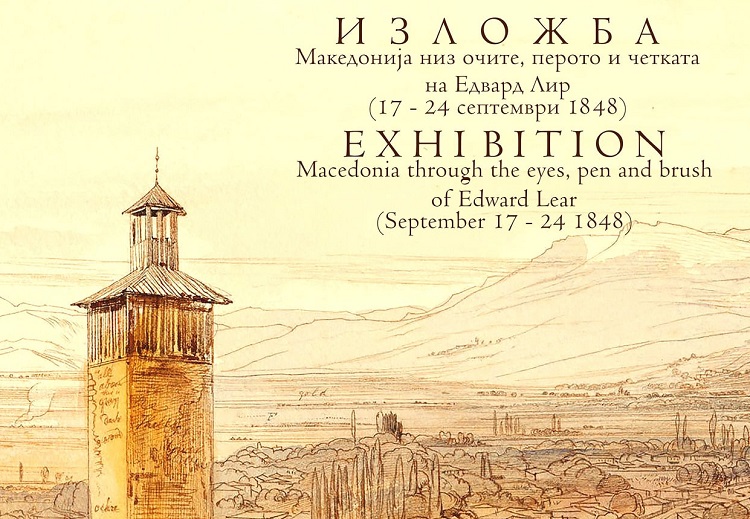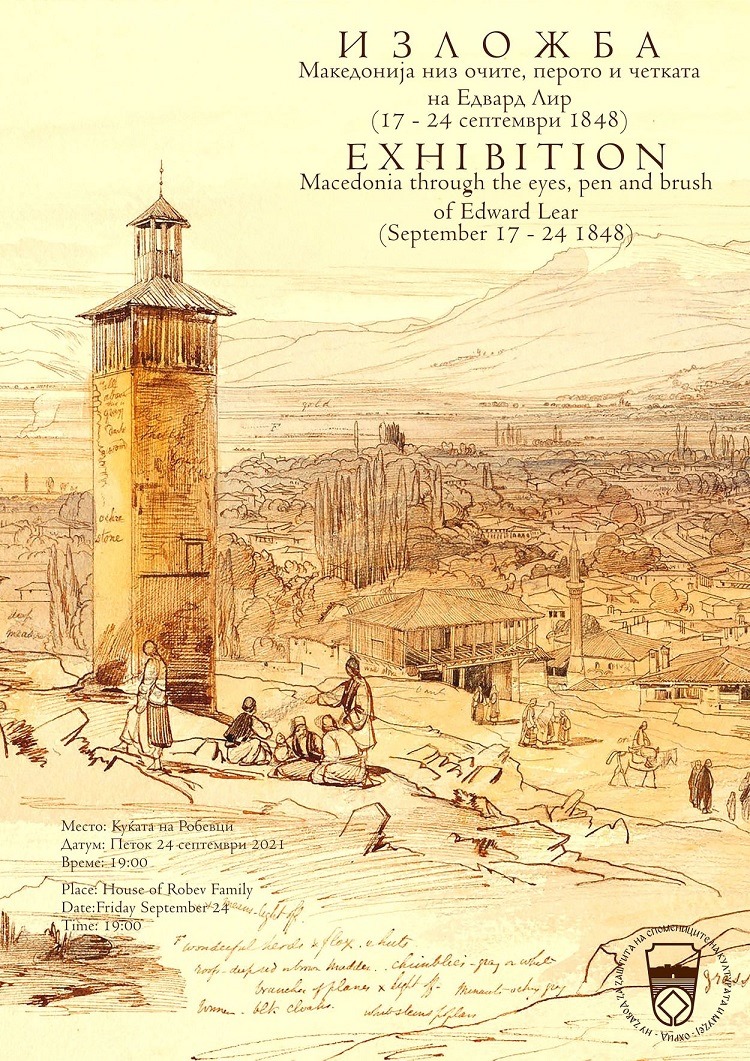An unusual exhibition of reproductions of works by Edward Lear will be set in the "House of Robevci" in Ohrid

An interesting and unusual exhibition is planned to be opened on September 24 in the "House of Robevci" in Ohrid. It is about the exhibition entitled "Macedonia through the eyes, pen and brush of Edward Lear, September 17-24, 1848", which is set by Milcho Georgievski from the Ohrid Museum in cooperation and with the support of the "Lexicon of Foreign Painters, 1850-1950".
Milcho Georgievski's many years of conservation work include several important projects for the promotion of Macedonian culture and art. He started his career in the conservation project of the church "St. Sophia", then participated in the organization of the exhibition of Ohrid icons in Utrecht in 2011, as well as the exhibition of Ohrid carvings in Rome in 2016. Milcho is an expert and author of several books on Macedonian icons.
"Lexicon of Foreign Painters" is an initiative that follows in the footsteps and buys works by foreign artists for whom Macedonia was an inspiration and muse in the period 1850-1950.
Regarding the author whose works will be exhibited, Edward Lear (1812-1888) the historical facts indicate that he was of an unusual character. Lear was one of 21 children in his family. He was raised by his older sister Anna. He had been suffering from epilepsy since the age of 6 and had vision problems. He was a top master of watercolor technique. He first drew animals, but in the 1840s he began traveling through Italy, Malta, Greece, Egypt, India and Ceylon.
He came to Macedonia from Greece and stayed in the period from 17 to 24 September 1848 in Ohrid and Bitola, and then continued in Albania. During his one-week stay, he drew a number of sketches and watercolors, which will be reproduced and exhibited at the "House of Robevci".

In addition to painting, Edward Lear was also a writer of the so-called nonsense poetry and prose, composed music and played piano, accordion, guitar and flute. He was a huge fan of Lord Tennyson's poetry and his compositions were inspired by Tennyson's poems.
(The text was published in "Cultural Press" number 97, in the print edition of the newspaper "Free Press" on September 18-19, 2021)


